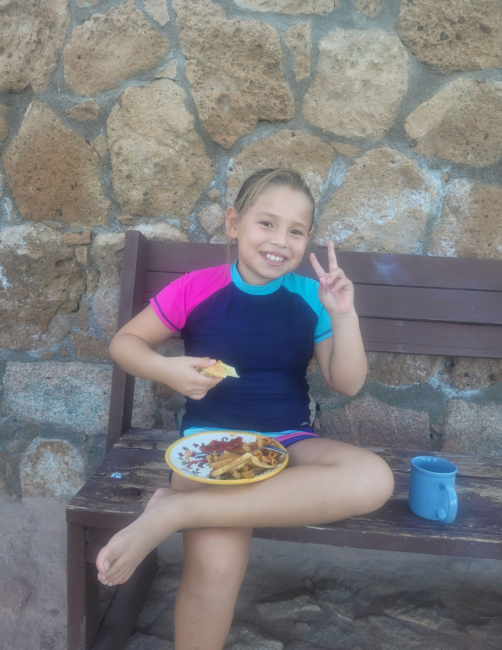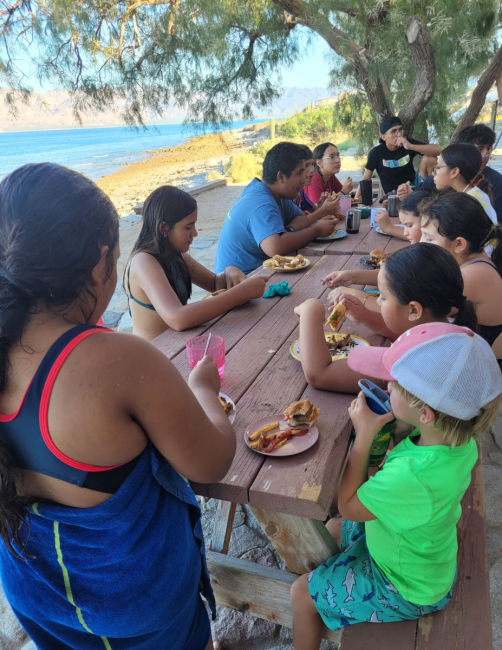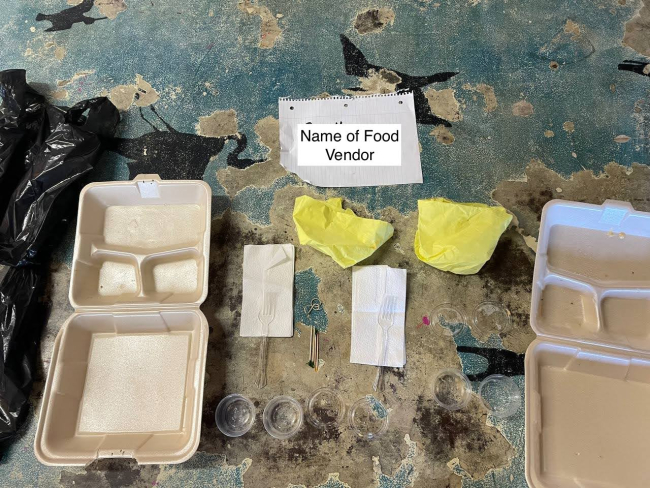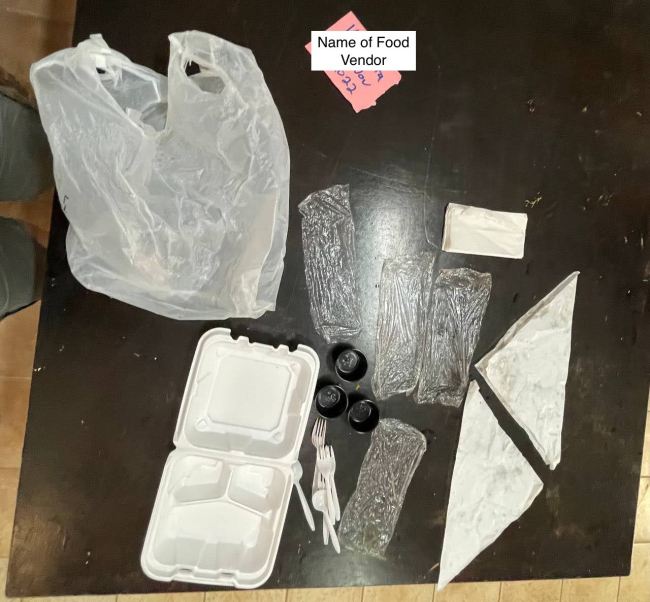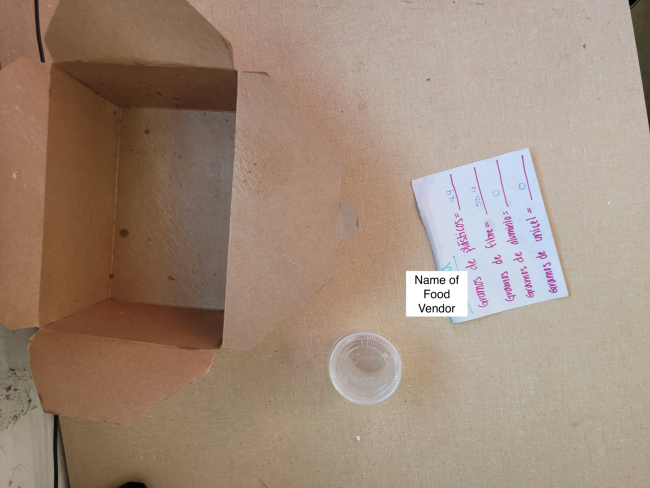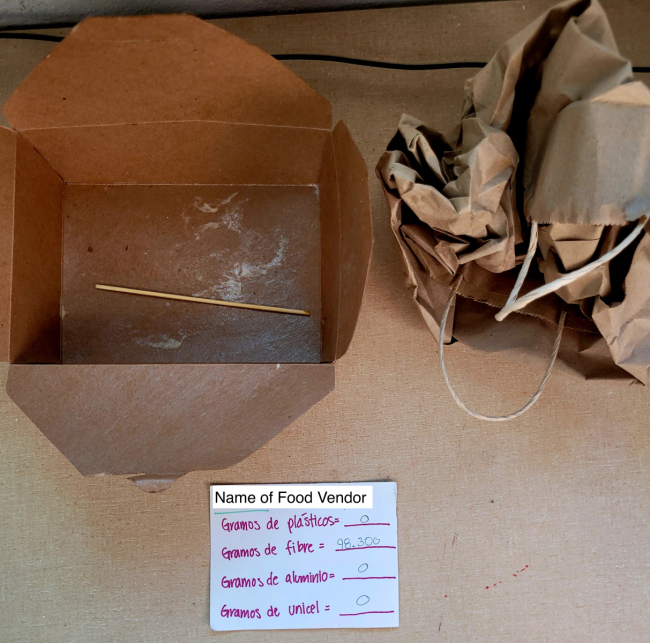Guest Blog By: Dr. Kelsie Fowler, Dr. Lyda Harris & Meghann McDonald at the Vermilion Sea Institute
“Look at this! Last time the food came in plastic foam – but now it is in our container!”
Aventureros youth hop out of the van, quickly running to restaurants to pick up their “hamburger to-go” (or torta, burrito, or similar item) before sprinting back to the van and finding their seats. In between turns, chaperones notice the youth excitedly discussing how the to-go food packaging has shifted since the last time they did the Hamburger Safari protocol. The change in to-go containers over a short 18 months has been drastic in Bahia de los Angeles, Mexico. Conducting the “Hamburger Safari” has allowed the youth to track these changes both qualitatively and quantitatively in powerful ways.
The Hamburger Safari and other community and youth-centered programs to study, mitigate, and divert plastics away from the ocean are a priority in Bahía de los Ángeles, which is a relatively small coastal town along the Baja peninsula. In Mexico, plastic makes up only 0.5% of recycled waste (Semarnat, 2015 & 2017). In rural or semi-urban locations, recollection and recycling rates are significantly lower. Additionally, the town attracts tourists year-round due to its warm weather and designation as a UNESCO World Heritage Site. This influx of tourists, coupled with the need for more waste disposal options, has resulted in large amounts of plastic waste and trash throughout the town's beaches and wetlands, impacting important marine ecosystems and community food sources.
Fortunately, the Aventurero youth, who are part of an environmental education program run by the Vermilion Sea Institute, are leaders and change-makers working to shift community waste practices. The Vermilion Sea Institute and the Aventureros began working to reduce local plastic pollution in 2021 after preliminary research showed that single-use plastics account for 58% of debris cleaned from over 50 local beaches. In response and with funding from the NOAA Marine Debris Program, the group has hosted numerous community events, engaged with over 550 community members, removed 1,000+ pounds of trash from nearby beaches, and prevented 3,500+lbs of plastic waste from entering the local ecosystem. They also helped launch a partner organization (Marea Viva) that collects and grinds plastic into new objects. A central component of the Aventureros work is supporting change with scientific findings from activities like the Hamburger Safari.
“They didn’t give me a bag this time–which is good but also makes it hard to carry,” Alex says as Maria jumps out of the van and sprints to a local favorite, Liz’s.
Maria comes back with a paper bag, and the team is quickly distracted by the exciting addition of free fries for the team. Raul jokes that the cooks are trying to bias the results and fakes disgust. The discussion and banter continue in the van until a hamburger (or other food item) has been collected from all of the open food vendors. But, the safari isn’t even close to over.
Back at the Field Station, the Aventureros break into teams to carefully process (and eat!) the Hamburger Safari data. They remove all of the food (including condiments) from its packaging, taking photos of both the food and containers as they go. Then, teams clean and dry the containers before categorizing their material composition by type: plastic foam (including brown “eco” foam and cups), hard and soft plastics (bags, utensils, ketchup packets, ramekins, lids), aluminum (foil), and paper (bags, napkins, boxes, cups) products. The youth then hone their analytical skills as they record the weights of each material type.
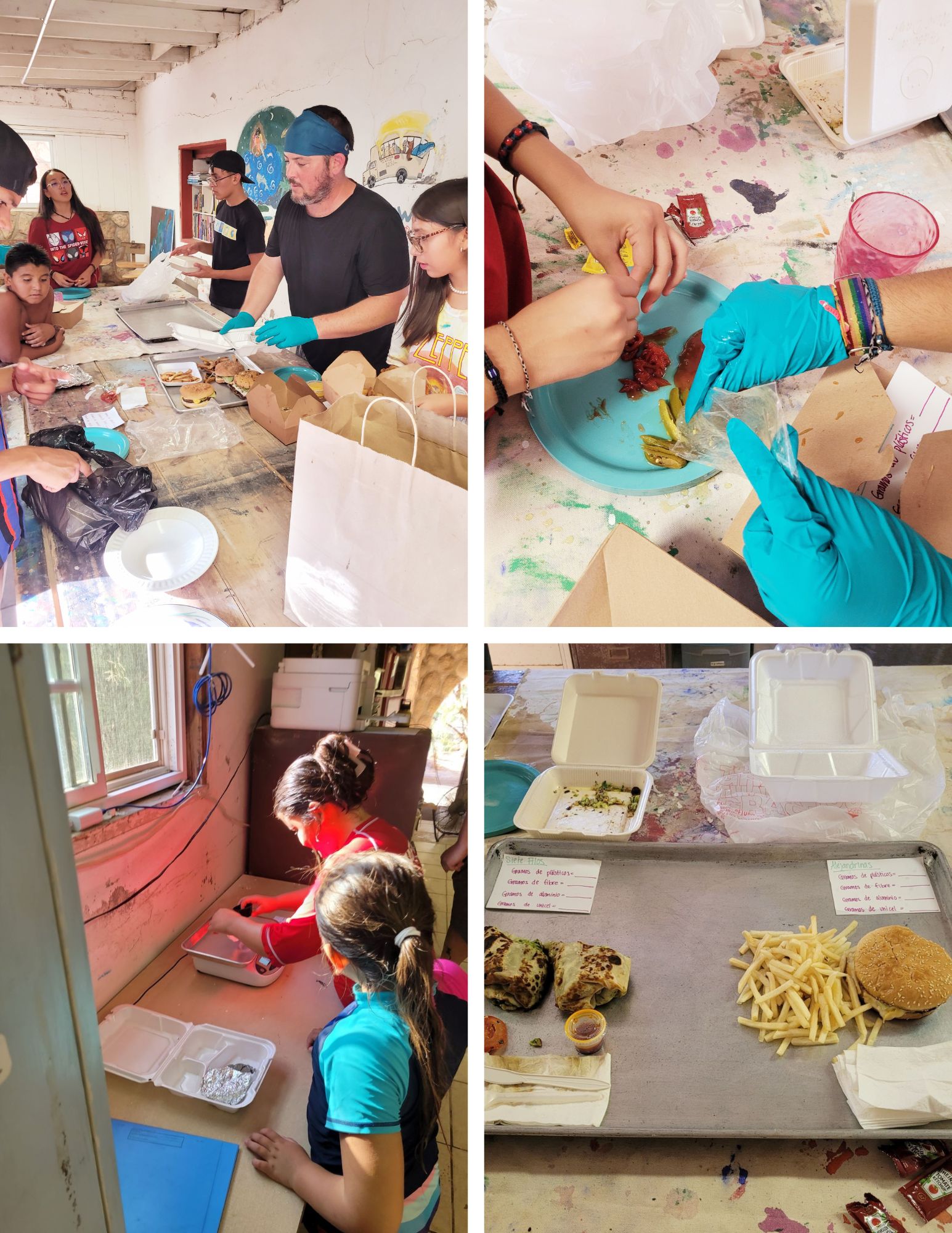
Later, after eating, youth collaborate to analyze their data and develop customer feedback for each of the food vendors. Data analyses show that nearly all of the 20 food vendors in Bahía de los Ángeles previously packaged their to-go orders in plastic or styrofoam boxes, which were then placed, along with plastic utensils, in a plastic bag during the first Hamburger Safari in 2022. Evidence from the most recent Hamburger Safari in 2024 shows an increase in paper products and more sustainable offerings! The Aventureros have plans to partner with an organization already working in Mexico to recognize ocean friendly restaurants as a way to bring positive attention to the food vendors in the community who are reducing their plastic footprints.
The Hamburger Safari is one of multiple ways the Vermilion Sea Institute, and the team of Aventureros, is documenting and supporting Bahia de los Angeles in its transition away from plastic-based and styrofoam to-go containers. The group regularly visits with food vendors to check-in, fill orders, and deliver samples. To support the transition away from single-use plastic items, more sustainable containers are cost subsidized and can be purchased anytime. By taking this approach, the cost to food vendors remains similar or even cheaper to traditional plastic and a more accessible item to buy.
The team of Aventureros are dedicated to their work preventing and reducing waste in Bahia de los Angeles, and they’ve seen some exciting results. In early 2024, the team reported a significant decrease in plastic waste abandoned, discarded or washed up on beach sites they have been monitoring. Their hard work is paying off! These youth have become key leaders in community education, beach cleans and surveys, and shifting community waste practices through behavior change engagement. The Hamburger Safari is a delicious adventure towards plastic free waterways!

